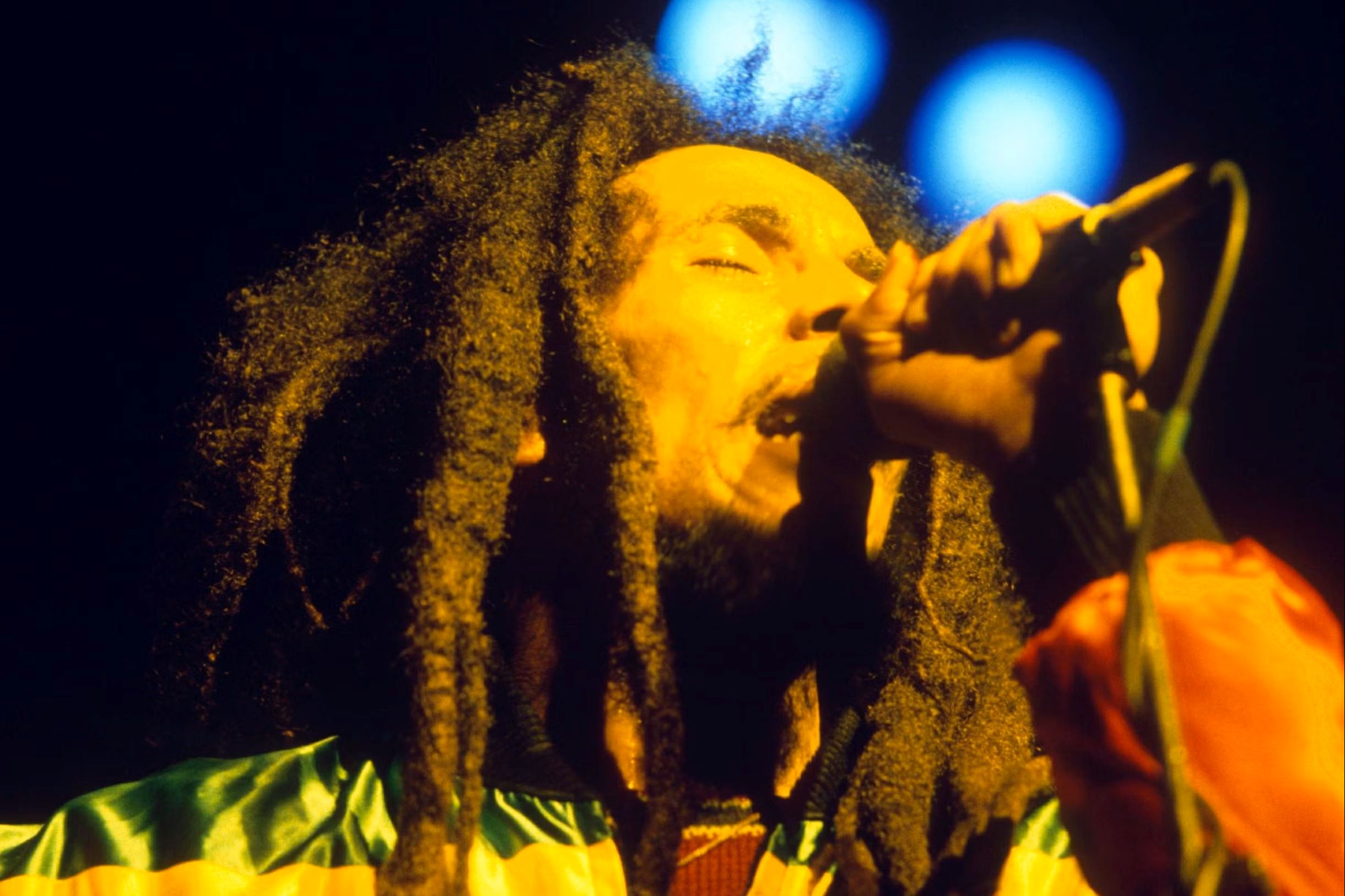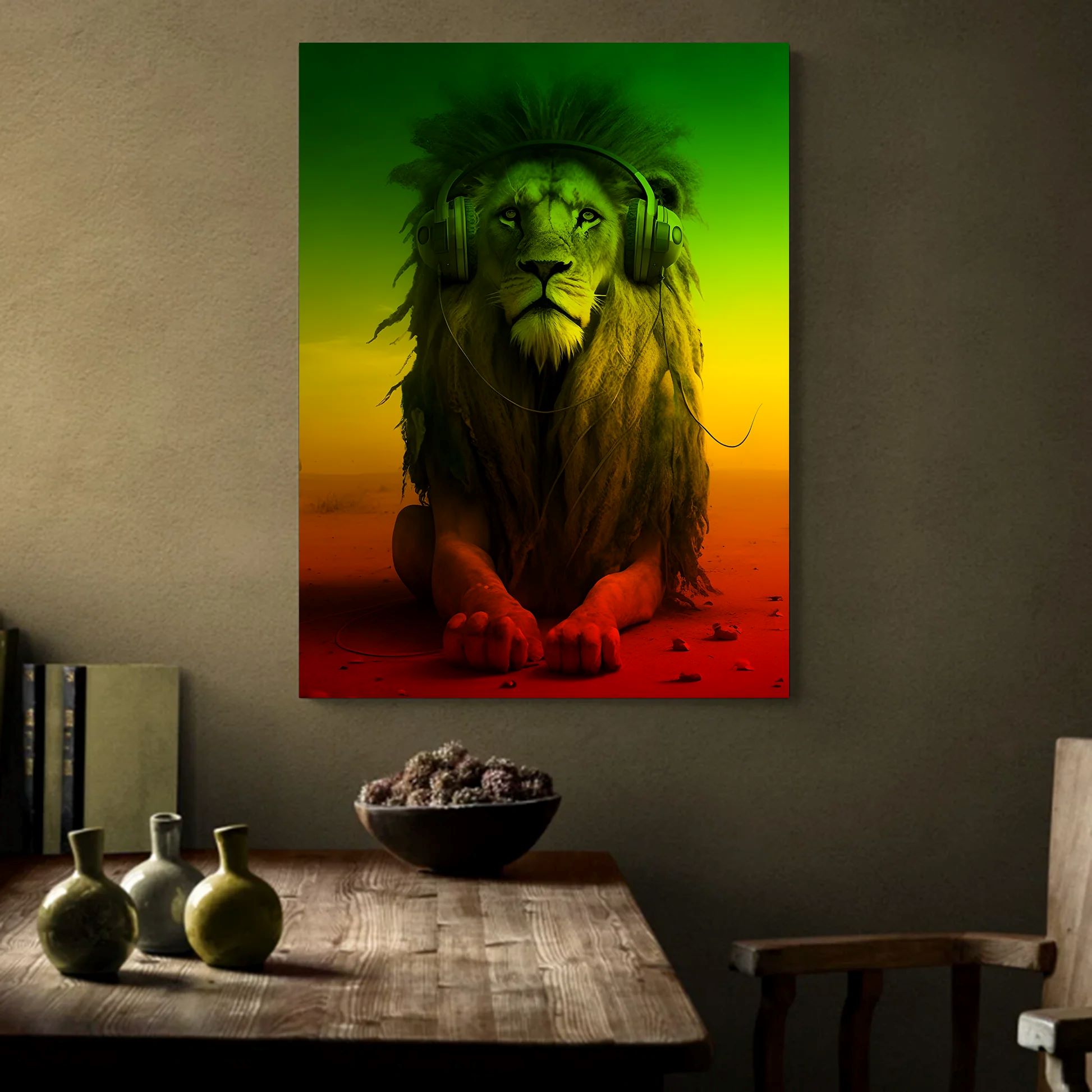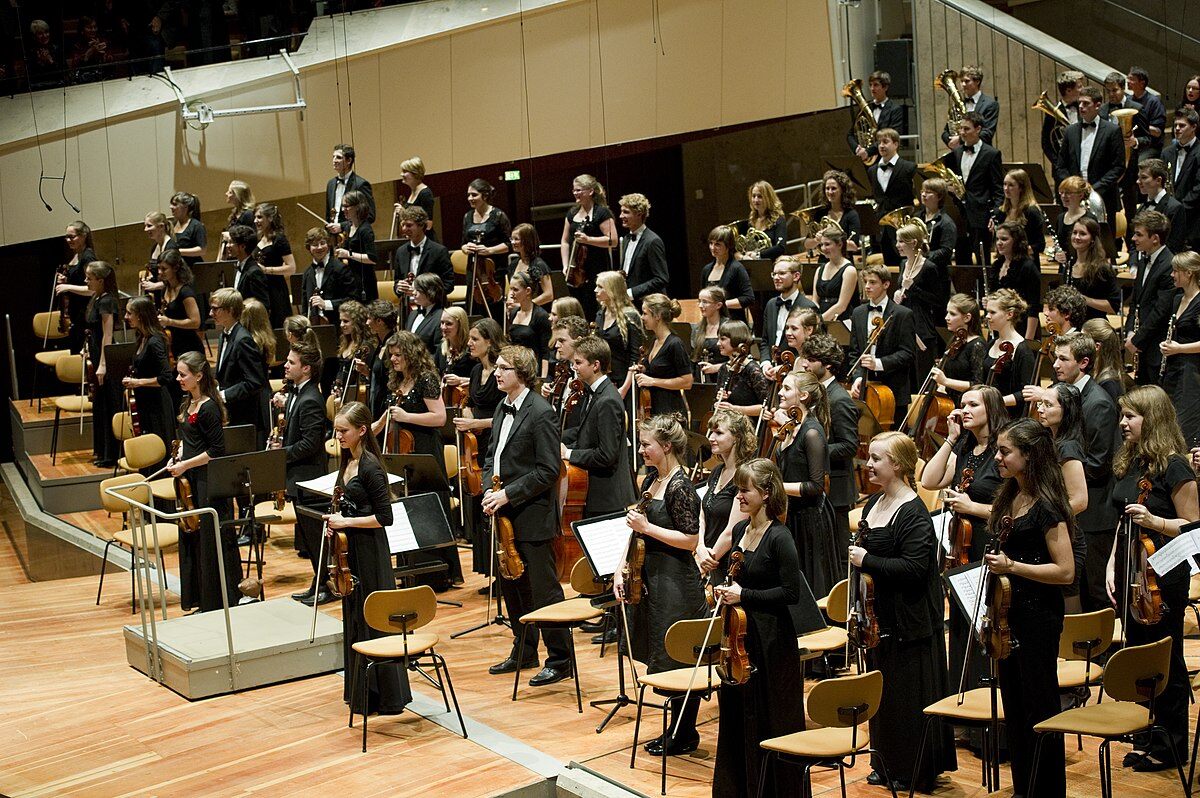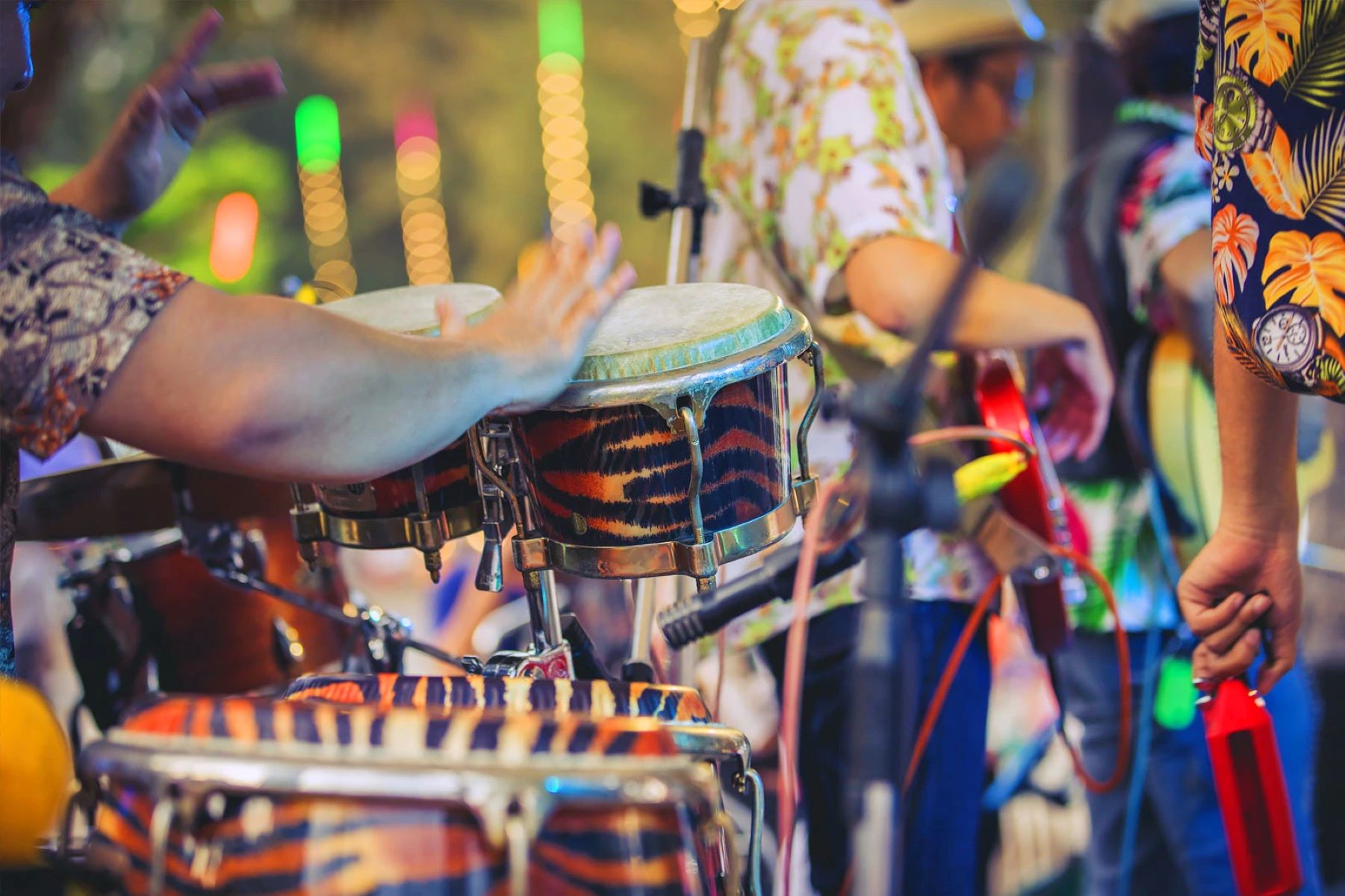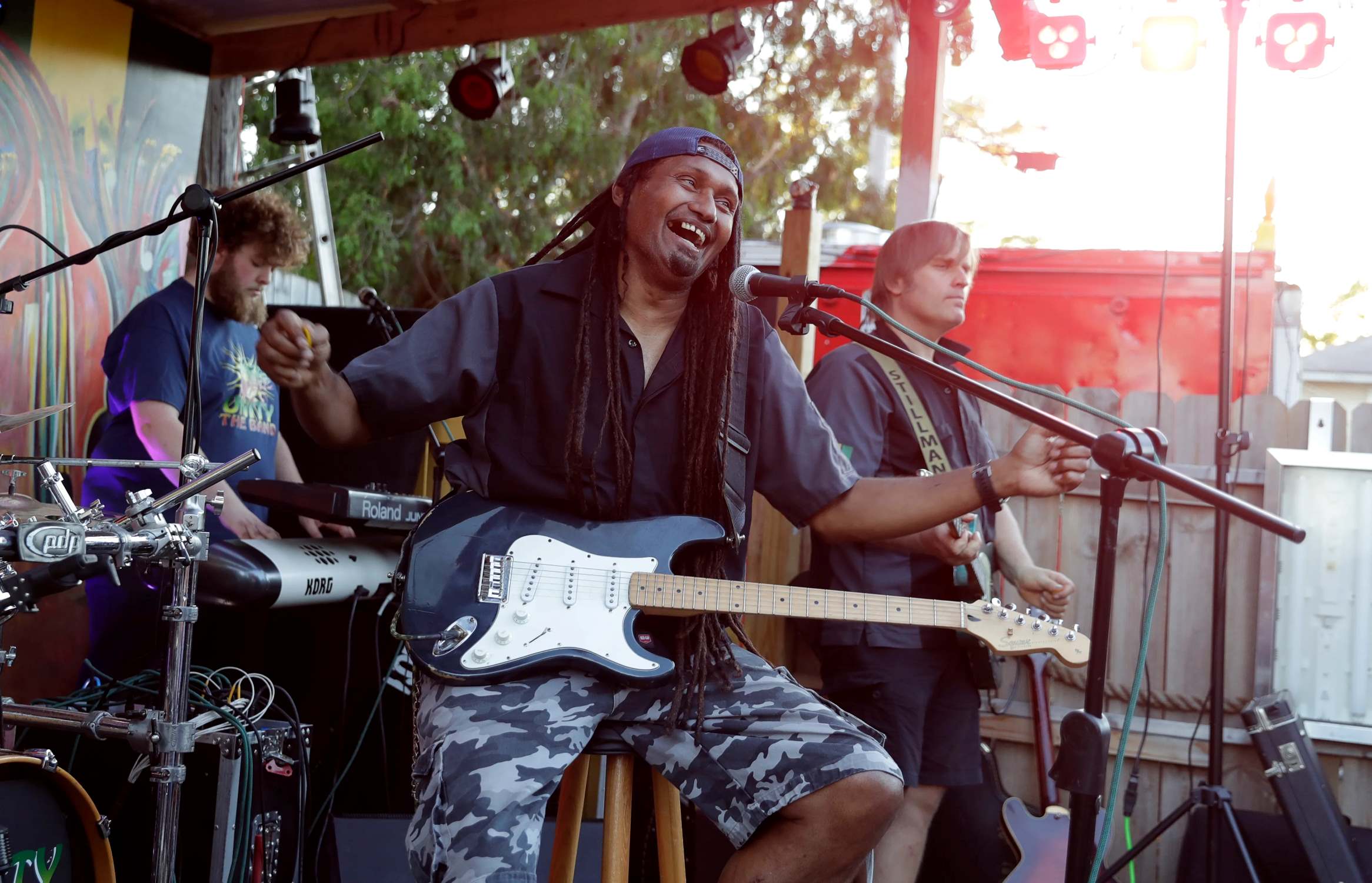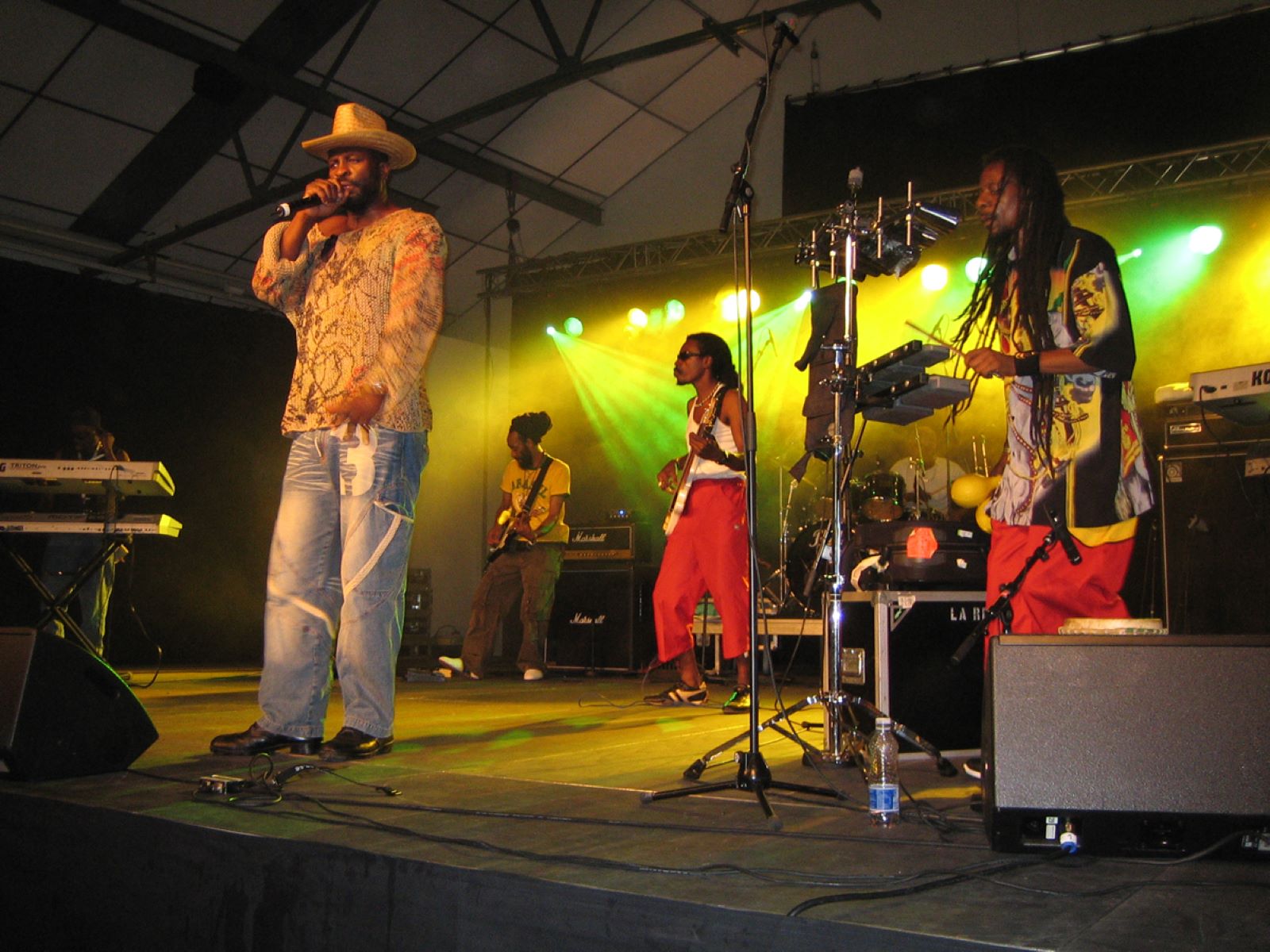

Reggae
What Does The Reggae Jah Stand For?
Modified: February 18, 2024
Discover the true meaning behind the reggae genre and the significance of the Jah in its culture. Uncover the essence of reggae music and its powerful messages.
(Many of the links in this article redirect to a specific reviewed product. Your purchase of these products through affiliate links helps to generate commission for AudioLover.com, at no extra cost. Learn more)
Table of Contents
- Introduction
- Origins of Reggae Music
- The Birth of the Rastafari Movement
- The Connection Between Reggae and Rastafari
- Understanding the Meaning of “Jah”
- Jah as a Representation of God
- Jah as a Symbol of Unity and Spirituality
- Jah as a Source of Strength and Guidance
- The Influence of Jah in Reggae Lyrics and Culture
- Conclusion
Introduction
Reggae music is a powerful genre that originated in Jamaica in the late 1960s. Known for its distinctive rhythm, soulful melodies, and socially conscious lyrics, reggae has since gained global recognition and impacted countless lives. At the heart of reggae music lies the Rastafari movement, a spiritual and cultural movement that emerged in Jamaica during the 1930s.
The Rastafari movement has its roots in the experiences and struggles of the Jamaican people, particularly those of African descent. It embodies a deep connection to African heritage, a rejection of societal norms, and a belief in the divinity of Emperor Haile Selassie I of Ethiopia. The movement is characterized by its distinctive livity, or way of life, which is centered around principles such as peace, love, righteousness, and equality.
One of the most significant elements of both reggae music and the Rastafari movement is the concept of “Jah.” This three-letter word holds immense meaning and significance in the Rastafari faith and serves as a central theme in many reggae songs. In this article, we will explore the origins and significance of Jah in the context of reggae music and the Rastafari movement.
Origins of Reggae Music
Reggae music has its roots in the earlier Jamaican music styles of ska and rocksteady. These genres emerged in the 1960s and were influenced by a blend of Jamaican folklore, American rhythm and blues, and African musical traditions. Reggae, however, took these influences and added its own unique flavor, creating a distinct sound that resonated with people around the world.
The birth of reggae music can be attributed to legendary Jamaican musician and producer, Bob Marley. Alongside his band, The Wailers, Marley popularized reggae music with hits such as “No Woman, No Cry,” “One Love,” and “Redemption Song.” His powerful lyrics, infused with social commentary and spirituality, helped to establish reggae as a genre that goes beyond mere entertainment and carries a message of hope, peace, and unity.
Reggae music became an outlet for expressing the struggles and aspirations of the Jamaican people. It served as a platform for addressing social and political issues, advocating for equality and justice, and celebrating the rich cultural heritage of Jamaica.
Over the years, reggae music has evolved and diversified, giving rise to various sub-genres such as dancehall, dub, and roots reggae. Despite these variations, the core essence of reggae remains intact – a rhythmic, soulful, and socially conscious music that has the power to uplift and inspire.
The Birth of the Rastafari Movement
The Rastafari movement emerged in Jamaica during the 1930s, primarily as a response to the social and economic conditions faced by the black population. It was a time of poverty, inequality, and colonial oppression, and the Rastafari movement offered a sense of hope, empowerment, and cultural pride.
The movement was deeply influenced by Marcus Garvey, a Jamaican political leader and activist who advocated for black self-determination and the repatriation of Africans to their ancestral homeland. Garvey’s message of black pride and empowerment resonated with many Jamaicans and laid the foundation for the Rastafari ideology.
Another significant event that shaped the birth of the Rastafari movement was the coronation of Emperor Haile Selassie I of Ethiopia in 1930. Many Rastafarians believe that Haile Selassie is the reincarnation of Jesus Christ and refer to him as the “Conquering Lion of the Tribe of Judah,” a title mentioned in the Bible.
This belief in the divinity of Haile Selassie became a central tenet of the Rastafari faith and served as a source of inspiration, strength, and hope for the marginalized and oppressed individuals who sought solace in the movement.
As the Rastafari movement spread throughout Jamaica, it became a symbol of resistance against social injustice, racial discrimination, and cultural colonization. Rastafarians rejected the societal norms imposed by Western institutions and instead embraced an alternative way of life centered on spirituality, African heritage, and communal living.
The movement’s distinct aesthetics, including dreadlocks, the wearing of red, gold, and green colors, and the use of natural elements such as marijuana, became symbols of Rastafari identity and resistance.
Today, the Rastafari movement continues to inspire individuals across the globe with its principles of love, unity, and the pursuit of personal and collective liberation.
The Connection Between Reggae and Rastafari
The connection between reggae music and the Rastafari movement is deeply intertwined, each influencing and shaping the other in profound ways. Reggae music became the soundtrack of the Rastafari movement, carrying its teachings, messages, and beliefs to a broader audience.
Reggae music served as a platform for Rastafarian artists to express their spiritual beliefs, social consciousness, and cultural identity. The lyrics of reggae songs often contain references to Rastafari principles, including the reverence for Emperor Haile Selassie, the struggle against oppression, and the pursuit of justice and equality.
Through reggae music, the Rastafari movement gained visibility and recognition beyond Jamaica, reaching people across the globe who resonated with the message of unity, love, and liberation. Iconic figures like Bob Marley, Peter Tosh, and Burning Spear became ambassadors of the Rastafari movement, spreading its teachings and ideals through their music.
On the other hand, the Rastafari movement influenced the development and evolution of reggae music. Rastafarian philosophy and spirituality infused reggae with a deeper purpose, giving the genre a unique identity that set it apart from other forms of music.
The Rastafari livity, which emphasizes spiritual awareness, social justice, and natural living, resonated with reggae artists who sought to create music that went beyond mere entertainment. They used reggae as a platform to address social issues such as poverty, inequality, racism, and political corruption.
Additionally, the Rastafari movement’s focus on African culture and heritage had a profound impact on reggae’s musical and lyrical elements. African-inspired rhythms, drumming patterns, and chants became integral parts of reggae music, infusing it with a sense of cultural pride and authenticity.
Overall, the connection between reggae music and the Rastafari movement is a symbiotic one. Reggae music amplified the message of the Rastafari movement, spreading its core beliefs to a wider audience, while the Rastafari movement infused reggae with spirituality, social consciousness, and cultural identity. Together, they have created a powerful and influential force that continues to shape and inspire both music and society.
Understanding the Meaning of “Jah”
In the world of reggae music and the Rastafari movement, the word “Jah” holds a profound and significant meaning. It is a term that represents the divine and spiritual essence, drawing from both biblical and Rastafarian beliefs.
The word “Jah” is derived from the Hebrew name for God, “Yahweh,” which is found in the Old Testament of the Bible. It is believed to be a shortened form of the name and is used to refer to the Almighty Creator, the Supreme Being.
For Rastafarians, “Jah” is more than just a name; it represents the spiritual presence and power that permeates the universe. It is an expression of their deep faith and connection to the divine.
In Rastafarian belief, Emperor Haile Selassie I is seen as the earthly representation of “Jah.” Rastafarians believe that Haile Selassie is a direct descendant of the biblical King Solomon and the Queen of Sheba, and therefore, he carries the divine lineage.
By referring to Haile Selassie as “Jah,” Rastafarians acknowledge his divinity and recognize him as the chosen one, fulfilling the prophecies of Marcus Garvey and the manifestation of their spiritual beliefs.
However, it’s important to note that not all reggae artists or listeners associate “Jah” solely with Haile Selassie. For many, it represents a broader spiritual connection to God, regardless of religious or cultural backgrounds.
In reggae music, the term “Jah” is used extensively in lyrics as a form of praise, gratitude, and reverence. It serves as a reminder of the spiritual foundation that underpins the music and its cultural significance.
Additionally, “Jah” is often used as a symbol of hope and liberation. It embodies the belief that through faith and connection to the divine, individuals can find strength, guidance, and a sense of purpose in navigating the challenges of life.
Overall, the meaning of “Jah” is multi-dimensional and deeply personal, varying depending on one’s beliefs and experiences. It represents the spiritual essence that permeates reggae music and serves as a reminder of the power of faith, unity, and the pursuit of righteousness.
Jah as a Representation of God
In the realm of reggae music and the Rastafari movement, “Jah” is recognized as a representation of God. It is viewed as the divine energy that permeates the universe and is embodied in all living beings.
Rastafarians believe that “Jah” is omnipotent, omniscient, and omnipresent. He is seen as the ultimate source of love, wisdom, and power. Rastafarians find solace, guidance, and protection through their connection to “Jah.”
For many, the concept of “Jah” transcends religious boundaries, embracing a universal spirituality that can be embraced by individuals of various faiths and backgrounds. It represents the belief in a higher power and a recognition of the interconnectivity of all living beings.
In reggae music, the representation of “Jah” as God is often accompanied by themes of praise, worship, and gratitude. Artists use their music to express their reverence and love for God, acknowledging His omnipotent presence in their lives.
Songs like Bob Marley’s “One Love,” which proclaims “One love, one heart, let’s get together and feel alright,” encapsulate the idea of unity and the belief in the divine presence that unites humanity as one.
Jah is also seen as a source of strength and comfort for those facing hardship and adversity. The lyrics of reggae songs often inspire resilience, hope, and faith in the face of struggles. It serves as a reminder that through faith in “Jah,” individuals can find courage, solace, and the strength to overcome obstacles.
Moreover, Jah is seen as a source of unconditional love and acceptance. Many reggae artists emphasize the message of love, compassion, and empathy, reflecting the belief that these qualities are essential in embodying the divine essence.
Overall, “Jah” as a representation of God in reggae music and the Rastafari movement embodies the belief in a higher power that transcends religious and cultural boundaries. It serves as a source of guidance, strength, and unity, reminding us of our interconnectedness and the need to embrace love and righteousness in our lives.
Jah as a Symbol of Unity and Spirituality
In the realm of reggae music and the Rastafari movement, “Jah” serves as a powerful symbol of unity and spirituality. It represents the interconnectedness of all living beings and the belief in a higher power that transcends individual differences.
One of the fundamental teachings of the Rastafari movement is the importance of unity among people. Rastafarians emphasize the idea that all individuals are equal and should live in harmony, regardless of race, nationality, or social status. “Jah” becomes a unifying force, reminding individuals of their shared humanity and the need to treat one another with love and respect.
The concept of “Jah” as a symbol of unity can be seen across reggae music. Many songs promote messages of togetherness, encouraging listeners to overcome divisions and come together in love and understanding. These songs aim to foster a sense of community and shared purpose, inspiring individuals to work towards a better world.
“Jah” also represents spirituality in reggae and Rastafarian culture. It embodies a deep connection to the divine and serves as a reminder of the importance of nurturing one’s spiritual well-being. Rastafarians believe in living a conscious and righteous life, guided by the principles of love, peace, and justice.
Reggae music often channels this spiritual essence, with lyrics that explore themes of introspection, self-discovery, and the quest for inner peace. The music acts as a medium for expressing one’s spiritual journey and seeking a higher consciousness.
Moreover, “Jah” symbolizes the influence of spirituality in everyday life. It encourages individuals to infuse their actions and interactions with love, compassion, and positive energy. By embodying the spirit of “Jah,” individuals strive to create a more harmonious and enlightened world.
In this context, “Jah” is not limited to a religious concept but represents a broader spiritual awakening that transcends specific beliefs. It serves as a catalyst for personal growth, encouraging individuals to develop a deeper connection with themselves, others, and the divine.
Through the symbol of “Jah” as unity and spirituality, reggae music and the Rastafari movement inspire individuals to look beyond their differences and embrace a sense of oneness. It calls for the realization that we are all interconnected, and through love and spirituality, we can build a more compassionate and harmonious society.
Jah as a Source of Strength and Guidance
In the realm of reggae music and the Rastafari movement, “Jah” is revered as a source of strength and guidance. It represents the belief that through connection with the divine, individuals can find inner strength, resilience, and guidance to navigate the challenges of life.
Rastafarians view “Jah” as an omnipotent and benevolent force that provides unwavering support, protection, and wisdom. In times of adversity and struggle, turning to “Jah” for strength and guidance is seen as essential.
Reggae music reflects this belief in the power of “Jah” to provide solace and upliftment. Many songs carry messages that inspire listeners to have faith in “Jah” and to find strength in His presence. For example, Peter Tosh’s anthem “Jah Guide” encourages individuals to trust in “Jah” as a guiding force in their lives.
Jah’s guidance is not limited to personal struggles, but extends to broader societal issues as well. Reggae artists often use their music to shed light on social injustices and advocate for positive change. They rely on the wisdom and guidance of “Jah” to speak out against oppression and to inspire listeners to take action.
Furthermore, “Jah” is believed to provide clarity and direction in one’s spiritual journey. Rastafarians strive to live in accordance with the principles laid out by “Jah,” seeking spiritual growth and enlightenment. The connection to “Jah” serves as a compass, guiding individuals towards righteousness and a deeper understanding of their purpose.
In a world filled with uncertainty, “Jah” represents a constant and unwavering presence. He provides a sense of comfort and reassurance, reminding individuals that they are never alone in their struggles. Through the awareness of “Jah’s” presence, individuals can draw strength and resilience in times of need.
The notion of “Jah” as a source of strength and guidance is not confined to a specific religious or cultural context. It resonates with individuals from various backgrounds who seek solace and purpose in their lives. “Jah” serves as a reminder of the inner power that lies within each individual, enabling them to overcome obstacles and find their true path.
Through reggae music and the teachings of the Rastafari movement, individuals are encouraged to cultivate a deep connection with “Jah” and draw upon His strength and guidance to navigate life’s challenges with faith and determination.
The Influence of Jah in Reggae Lyrics and Culture
The influence of “Jah” in reggae music and culture is profound and far-reaching. The concept of “Jah” permeates reggae lyrics, shaping the themes, messages, and cultural identity of the music genre. It has also had a significant impact on the broader Rastafarian-influenced culture.
Reggae lyrics often incorporate references to “Jah” as a way of expressing reverence, gratitude, and spiritual connection. The word “Jah” can be found throughout reggae songs, highlighting the deep spiritual beliefs of the artists and their desire to convey the teachings of the Rastafari movement.
These lyrics serve as a means of spreading the message of unity, social justice, and love, which are central tenets of the Rastafari faith. They encourage listeners to embrace righteousness, seek spiritual growth, and resist oppression.
Moreover, the influence of “Jah” goes beyond the lyrics themselves. It has shaped the overall cultural identity associated with reggae music and the Rastafari movement. The use of natural elements, such as wearing the colors red, gold, and green and growing dreadlocks, is often intertwined with the expression of love and reverence for “Jah.”
In Rastafarian-influenced culture, “Jah” serves as a guiding force in personal and collective life choices. It influences the way individuals interact with each other, as well as their consumption habits, dietary choices, and cultural practices.
Rastafarian gatherings and celebrations, known as “reasonings,” often center around sharing wisdom, music, and food. These gatherings provide an opportunity for Rastafarians to come together, discuss spiritual matters, and reinforce their connection to “Jah.”
Furthermore, “Jah” has influenced the development of reggae as an international music genre. The popularity of reggae music has spread across the globe, and artists from different cultural backgrounds incorporate the concept of “Jah” into their lyrics and performances. This international adoption has contributed to the universal appeal and recognition of reggae music as a powerful form of expression.
Overall, the influence of “Jah” in reggae lyrics and culture is undeniable. It reflects the deep spiritual beliefs and principles of the Rastafari movement, spreading messages of unity, social justice, and love to a global audience. “Jah” serves as the guiding force that inspires reggae music and influences the broader cultural practices associated with the genre.
Conclusion
Reggae music and the Rastafari movement are deeply intertwined, sharing a profound connection rooted in spirituality, social consciousness, and cultural identity. At the heart of this synergy lies the concept of “Jah,” a representation of God and a symbol of unity, strength, and guidance.
Reggae music serves as a powerful platform for expressing the beliefs, teachings, and principles of the Rastafari movement. Through its rhythmic melodies and socially conscious lyrics, reggae music spreads messages of love, justice, and equality, encouraging listeners to embrace their spirituality and work towards a better world.
The influence of “Jah” can be felt not only in reggae lyrics but also in the broader Rastafarian-influenced culture. It shapes the way individuals live, interact, and find solace in their spiritual journey. The concepts of unity, love, and social justice embodied in the teachings of “Jah” extend beyond religious and cultural boundaries, touching the lives of people from various backgrounds who resonate with the music and its message.
Moreover, “Jah” serves as a source of strength and guidance, providing individuals with the inspiration and resilience needed to navigate life’s challenges. It reminds them of their inner strength, interconnectedness with others, and the importance of living in alignment with principles of love, righteousness, and equality.
Reggae music and the Rastafari movement have had a profound impact on global culture, spreading a message of unity, spirituality, and social change. Through their connection to “Jah,” artists and listeners alike continue to embrace these values, striving to create a better world that reflects the principles of love, justice, and equality.
In conclusion, the concept of “Jah” embodies the essence of reggae music and the Rastafari movement. It represents a deep connection to the divine, an unwavering source of strength, and a symbol of unity and guidance. As reggae music continues to evolve and inspire, the influence of “Jah” will undoubtedly remain at its core, reminding us of our shared humanity and the power of love and spirituality in a world that constantly strives for peace and harmony.

